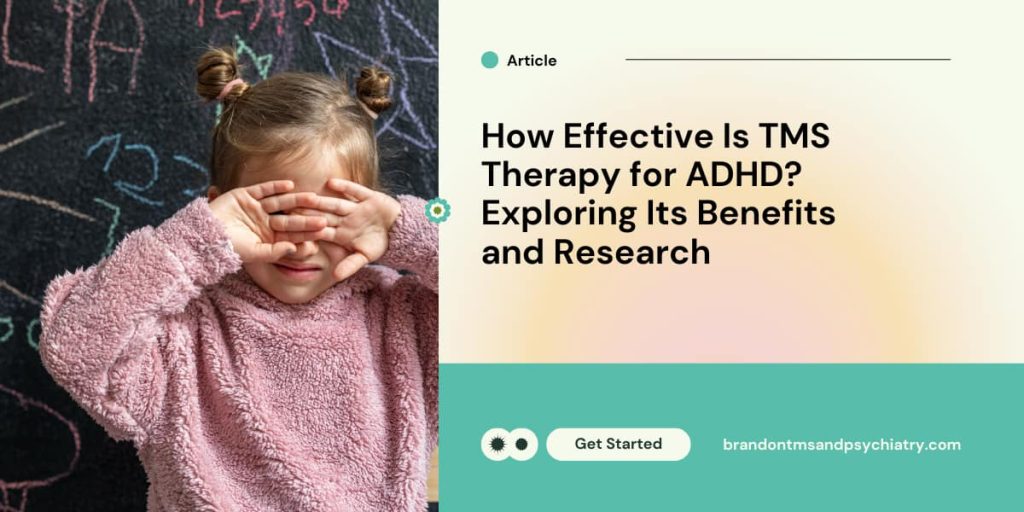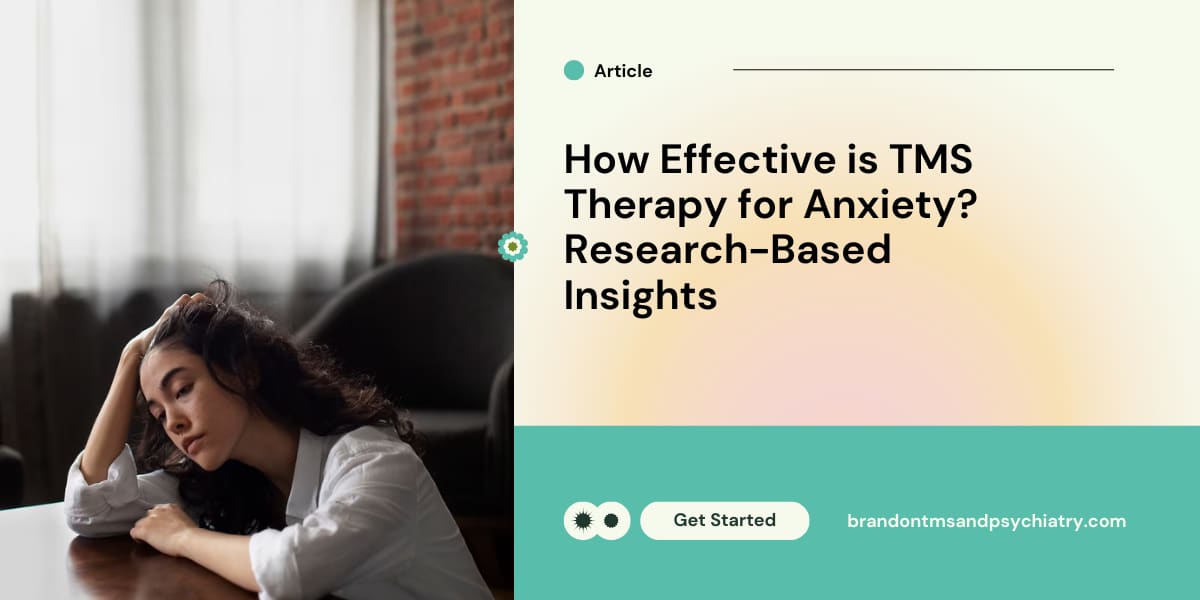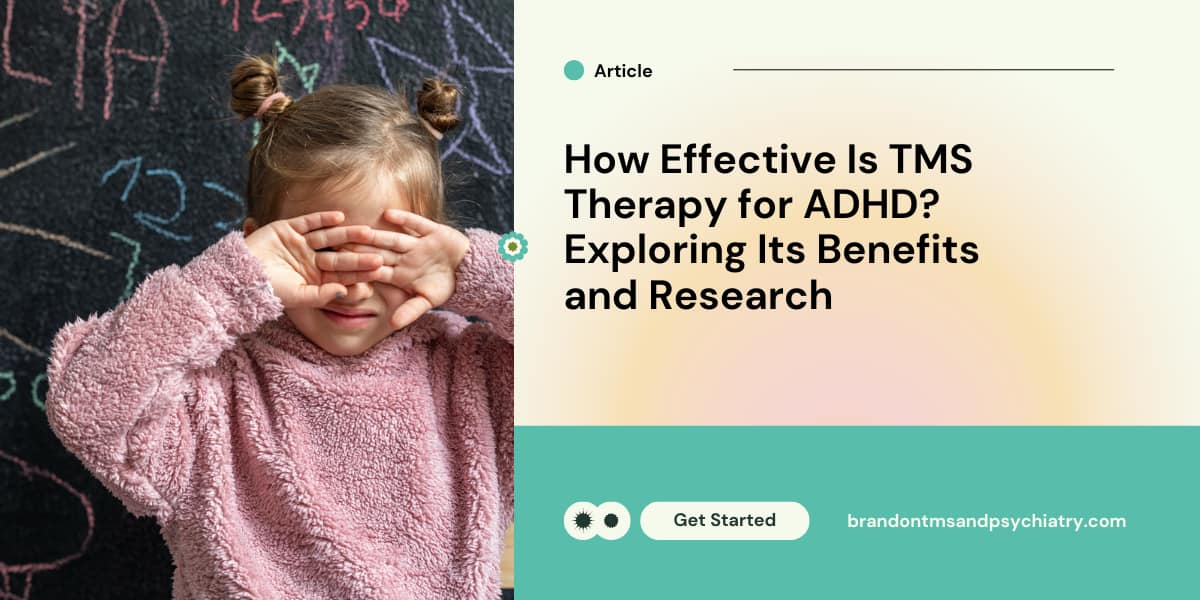ADHD (Attention Deficit Hyperactivity Disorder) is a condition that affects millions of children and adults worldwide, making it difficult for individuals to stay focused, control their impulses, and manage hyperactivity. Traditional treatments like medication and behavioral therapy have been the primary methods to manage symptoms, but they aren’t always effective for everyone. This has led to the exploration of alternative treatments, such as Transcranial Magnetic Stimulation (TMS).
In this article, we’ll explore how ADHD impacts the brain, whether TMS therapy can help alleviate symptoms, and what you can expect if you’re considering TMS as a treatment option. We’ll also look at the potential benefits, side effects, and who might be a good candidate for this therapy.
How ADHD Affects the Brain
ADHD impacts the brain regions responsible for attention, planning, and impulse control. In individuals with ADHD, these areas don’t function in the same way as in people without the disorder. Neurotransmitters, which are the brain’s chemical messengers, may be imbalanced, making it harder to stay focused and control behavior.
Brain Areas Affected by ADHD:
| Brain Region | Function | Impact of ADHD |
|---|---|---|
| Prefrontal Cortex | Planning, attention, and impulse control | Reduced activity |
| Basal Ganglia | Movement and coordination | Dysregulation in motor activity |
| Limbic System | Emotion regulation | Heightened emotional responses |
Can TMS Therapy Help with ADHD Symptoms?
Recent studies suggest that TMS therapy may be beneficial for individuals with ADHD. TMS works by stimulating specific areas of the brain that are underactive in ADHD patients. The magnetic pulses help increase brain activity, which can improve symptoms like inattention, hyperactivity, and impulsivity over time.

While the research is promising, it’s important to note that results can vary. Some patients report a noticeable reduction in symptoms after several sessions, while others may need more time to experience improvements.
Benefits of TMS Therapy for ADHD:
- Non-invasive and drug-free
- Targets specific brain areas related to ADHD
- Minimal side effects
- Suitable for patients unresponsive to medication
What to Expect During TMS Therapy for ADHD
A typical TMS session lasts around 30-40 minutes, during which the patient sits comfortably while a magnetic coil is placed on their head. The coil delivers pulses that stimulate the brain regions associated with ADHD. Sessions are usually scheduled five days a week for four to six weeks, depending on the treatment plan.
Here’s what a typical TMS treatment schedule might look like:
| Week | Sessions per Week | Session Duration |
|---|---|---|
| 1 | 5 | 30 minutes |
| 2 | 5 | 30 minutes |
| 3 | 5 | 30 minutes |
| 4-6 | 5 | 30 minutes |
Side Effects and Risks of TMS for ADHD
Although TMS is generally well-tolerated, some side effects may occur. These are typically mild and temporary, such as:
- Headache
- Scalp discomfort
- Lightheadedness
- Mild tingling sensation
Most side effects disappear shortly after the session, and severe side effects are rare.
Who is a Candidate for TMS Therapy for ADHD?
TMS therapy is generally considered for individuals who have not had success with other treatment methods. It is often recommended for those who have not responded well to ADHD medications or experienced significant side effects from traditional treatments.
TMS offers an alternative for managing ADHD symptoms without the need for drugs. Patients who prefer non-invasive treatments may also benefit from TMS, as it focuses on specific areas of the brain related to ADHD. While results can vary, many patients notice improvements in their focus, impulse control, and overall behavior after completing a series of TMS sessions.
Conclusion
TMS therapy presents a promising alternative for individuals with ADHD, particularly for those who have not found success with traditional treatments like medication. Although research is ongoing, early results suggest that TMS can help improve focus, attention, and impulse control by targeting specific brain areas involved in ADHD.
As a non-invasive and drug-free option, TMS offers a new avenue for managing symptoms, with minimal side effects and encouraging outcomes. For those seeking alternative therapies for ADHD, TMS may be worth considering in consultation with a healthcare professional.




